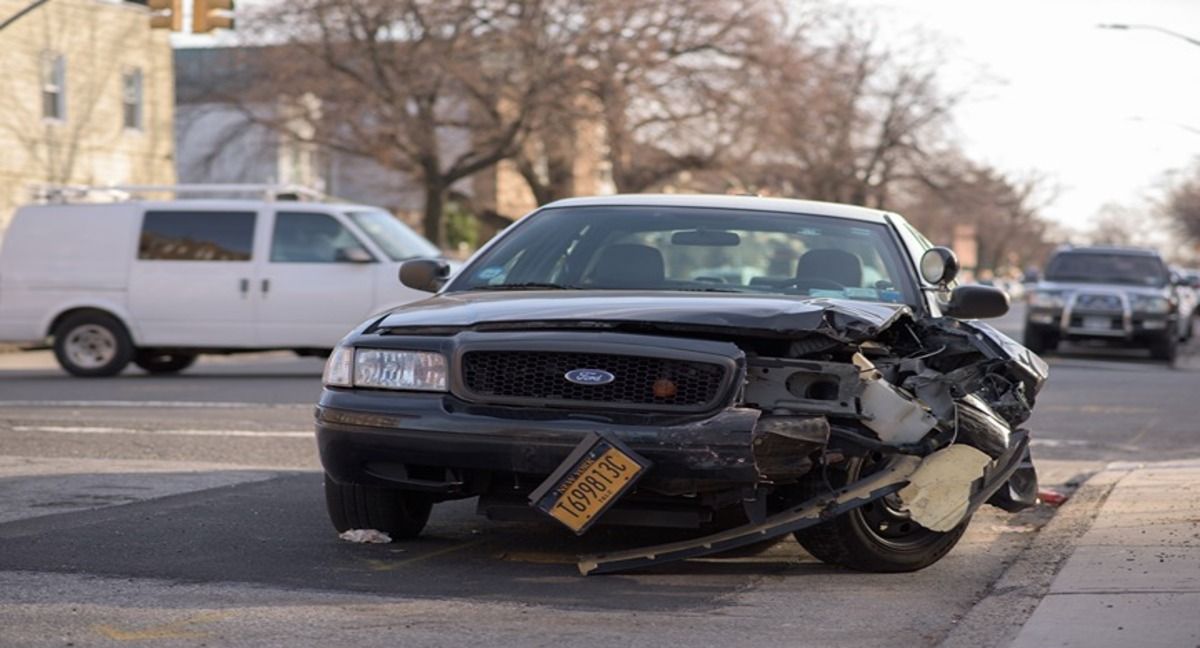Brooke graduated from the University of Richmond School of Law after receiving her undergraduate degree from the University of North Carolina at Chapel Hill. Brooke worked for five years in private practice with a law firm specializing in insurance defense litigation before becoming the trial litigator for Allstate Insurance Company in the metro Richmond area.
Car accidents can be terrifying. It’s even worse when you discover that something malfunctioned in the vehicle that was supposed to keep you safe.
Various auto parts, components, or even an overall defect in the design of a car can lead to catastrophic results.
Even if a manufacturer recalls the part or vehicle, it’s typically too late for some victims. Car defects and malfunctions kill many unsuspecting motorists every year.
Contact a Richmond, Virginia personal injury attorney at River Run Law today if you suffered injuries from a defective automotive part and want to understand your legal options.
Common Types of Automotive Defects
Car defects and malfunctions can occur in nearly any type of vehicle part, but certain ones are more common than others. The most common types of automotive defects we see include the following.
Airbags
Manufacturers design vehicle airbags to keep you safe in a collision. However, airbag failures happen all the time. They might deploy with too much force, mistakenly deploy, or not deploy at all.
Tires
Tires that have a defect can blow out and cause accidents or collisions. One of the more common tire defects is tread separation.
Defective or old glue can result in tread separation. Bead, or sidewall, failure can result in loss of tire pressure, which causes the tire to collapse and blow out.
Brakes
When your brakes fail to work, you can find yourself in a severe collision with another vehicle or stationary object. Defective design, improper manufacturing or repairs, and other defects can lead to brake failure.
Seat Belts
You always hear that you should wear a seat belt to keep you safe in the event of an accident. However, what happens when the seat belt doesn’t work?
Victims can suffer catastrophic injuries. A seat belt that doesn’t lock properly could become unlatched in a collision and throw an occupant from the vehicle.
Examples of Vehicle Defect Cases
To better understand potential types of vehicle defect cases, here are some real-life examples of defects that killed many people:
- Chrysler gas tank fires led the manufacturer to recall 1.5 million Jeeps after discovering exposed plastic gas tanks might rupture and catch fire. At least 50 people died, but experts believe that estimate is low.
- One of the most well-known airbag defects occurred in Takata airbags. Takata recalled tens of millions of airbags because long-term exposure to humidity caused some airbags to explode upon deployment. Some people suffered injuries, while others died.
- Firestone Tires made news when defective tires were linked to nearly 300 deaths after the tread separated, causing deadly collisions. Many defects involved tires on the Ford Explorer between the late 1990s and early 2000s.
There are many other reported auto part defects and recalls that continue to put countless drivers at risk every day.
Proving a Defect in a Car Accident Case
To receive compensation, you must prove who is liable for your injuries. In a product defect case, you might be suing the vehicle manufacturer, a mechanic shop, a dealership, or other parties.
You can pursue a defect claim under several different legal theories. Under a negligence theory, you need to prove that:
- The auto part was defective;
- You used the part as it was intended to be used;
- You suffered injuries; and
- Your injuries resulted from the defect.
Strict liability laws can also allow you to hold defendants liable for defective products, regardless of whether they were negligent or there was a breach of warranty.
Identifying all liable parties responsible for car defects and malfunctions is a complicated process. You must determine where the defect occurred.
For example, a manufacturer might’ve designed and manufactured the vehicle part correctly, but an issue developed during installation.
In that case, the installer might be the responsible party. It becomes even more complicated to determine who all the liable parties are when dealing with a used vehicle.
Who Can Recover Damages in a Defective Car Accident
If you suffered injuries due to an automobile or parts defect, you might have the right to collect compensation for your damages.
Any passengers in the vehicle might also be able to receive compensation for their injuries.
If a victim dies from injuries sustained in an accident involving a vehicle defect, certain surviving family members have the right to receive compensation through a wrongful death lawsuit.
The estate’s personal representative files this claim on behalf of surviving family members.
Several family members can be eligible to collect compensation in a wrongful death lawsuit, including the spouse and biological children, stepchildren, and adopted children of the deceased person.
If the deceased person had no spouse or children, other family members, such as parents or siblings who were financially dependent on the deceased, can collect compensation.
Contact a Virginia Personal Injury Lawyer Today
If you sustained injuries due to a defective auto part, the skilled legal team at River Run Law is here to help.
Let us put our years of personal injury and defective product experience to work for you.
We aggressively pursue justice in cases involving car defects and malfunctions and will protect your rights throughout the entire claim process.
At River Run Law, we use cutting-edge technology to give every client highly personalized service that is tailored to their case and needs.
Contact us today to find out more about how one of our Virginia personal injury lawyers can help you.


